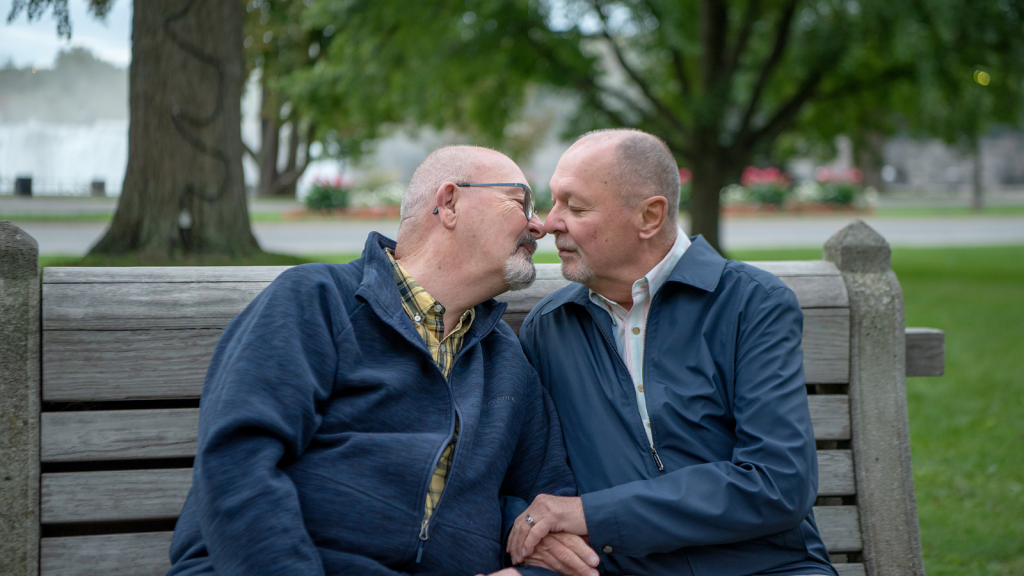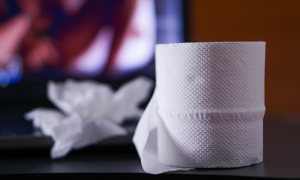
STIs Are Not Just for the Young
STIs aren’t about age, they’re about sexual behavior. Older people are having sex, and they need to be thinking about sexually transmitted infections.

This essay from Dr. Pepper Schwartz, featured in ASHA’s book Creating a Sexually Healthy Nation, gives the scoop on Baby Boomers and navigating the sexual landscape as they age.
Like other Baby Boomers, I have become exquisitely expert at denial. I am not sure how it came to pass that those of us born roughly during the period of 1945 to 1964 thought we might never have to age—but somehow we did. Even though we know, deep in our hearts, that Ponce de León never found that fountain of youth, there is a petulant part of us that strongly resents any infringement on our youthfulness.
Nowhere is this more sensitive than when it concerns our body’s appearance and function—and you can double that sensitivity when it comes to sex. After all, sex was the hallmark of this generation’s adolescent rebellion, and later on, a part of the women’s movement we spearheaded. We supported more (and better) sex in movies, television, and magazines. Boomers may not have started the Stonewall uprising, a landmark event of the gay civil rights movement, but we have been part of the movement’s leadership and backbone.
Speaking of progress, though the famous sex researchers Masters and Johnson were not Boomers, their research emboldened us to ask for more out of our sex lives…and we did. Boomers fueled the growth of sexual freedoms, sexual aids, and, ultimately, sex therapy. We have been part of a demand for sexual enhancements that include vibrators, lubricants, and drugs for erection and desire. We equate sexuality with vitality. (The initials ED are now understood by almost every man on the planet.)
So it’s not surprising that surveys find that the vast majority of older men and women believe sex is important and maintain an active sex life. A majority of them are willing, if not eager, to see what they can do to continue to be sexually active for as long as possible.
But the demand for lifelong sexual ability is not always easy. Sexual desire, loss of partners, and discomfort with aging bodies can get in the way. Women’s sexual desire and arousal after age 50, for example, can be complicated and there does not seem to be a magic elixir that will prop up women’s ardor in the same way erectile dysfunction drugs, shots, or pumps can prop up a penis. Too many older adults, and in particular too many women, feel defeated by a lack of sexual interest, pleasure and/or comfort with their body.
Many men and women over 70 are alone. Not knowing how to find a partner or lacking the courage to go online and look for one, they get dispirited, depressed, or just turn off their sexual engine as a rational adjustment to their situation.
Moreover, the sexual health and sexual knowledge of older adults who find themselves back in the dating scene is not too impressive. Two surveys released in 2010 found that less than one-sixth of older single men and only about one-third of older single women used condoms consistently or always. Condom use is almost invisible among single older adults, even though some are now so thin (but strong) that many men aren’t sure they are still on! Not surprisingly, the number of people over 50 with sexually transmitted diseases has been going up.
So, older adults, the same people who sparked and maintained a sexual revolution, are having to reinvent themselves again. They are having to deal with the side effects of some medications used to combat major illnesses, like depression, cancer, and vascular diseases, which can affect their sexual health. They are forcing themselves to recognize the fact that afflictions of older people (diabetes, heart problems, high blood pressure, etc.) may eventually surface in their lives and sex lives. They are trying to figure out how to deal with bad knees or backs without letting these aches and pains undermine their sexuality. They are often dealing with the issues that come with living in retirement communities or, later, nursing homes. And, they are having to deal with the real consequences of STDs.
All that said, it is a brighter world for the sexual lives of Boomers and their elders than it was for people who are now in their 80s and older. There are all kinds of sex therapy, some great (and alas, some not so great), as well as all sorts of information on the Internet that is accessible to anyone, not to mention more and better sex research and advances in sexual medicine.
These are steps in the right direction and give us reason to be optimistic about a longer sexual life cycle for older people now—and in the future.

Pepper Schwartz, PhD, is a professor of sociology at the University of Washington in Seattle. She is the past president of the Society for the Scientific Study of Sexuality and the author of 20 books, most of which are about sexuality and/or relationships.

STIs aren’t about age, they’re about sexual behavior. Older people are having sex, and they need to be thinking about sexually transmitted infections.

In this essay, certified sexuality counselor Evelyn Resh reflects on how our sex lives and perceptions of pleasure change over time.

Featuring interviews with medical professionals and experts in the field of sexuality, ASHA’s Sex+Health podcast aims to offer information and resources to with the goal of helping people take charge of their sexual health.

The number one complaint of women that I see for sexuality counseling is that they have no libido – zip, gone, disappeared. Contrary to what many of us assume, this happens to women of all ages and levels of love, attachment, and attraction to their

A new paper suggests that there are biological and evolutionary reasons that we masturbate and looks to our ape ancestors for evidence. There is evidence starting around 40 million years ago that the ancestors of all monkeys and apes did indeed masturbate.

Whether we’re attracted to the opposite gender, the same gender or both, the truth is: We learn how to experience sexual pleasure for pleasure’s sake by understanding our own sexual desires and responses.

What exactly does sexual health mean when applied to those of us who are considered boomers? It’s about more than just going to the doctor – sexual health awareness is about taking care of your own sexual well-being as well as working to promote a

Sexual pleasure is always worth celebrating. Sex has been shown to promote better sleep habits, less stress, and more happiness. Our bodies thrive on the chemicals released during orgasm, so a healthy sex life is indeed part of a healthy body.
ASHA believes that all people have the right to the information and services that will help them to have optimum sexual health. We envision a time when stigma is no longer associated with sexual health and our nation is united in its belief that sexuality is a normal, healthy, and positive aspect of human life.
ABOUT
GET INVOLVED
ASHA WEBSITES
GET HELP
© 2025 American Sexual Health Association